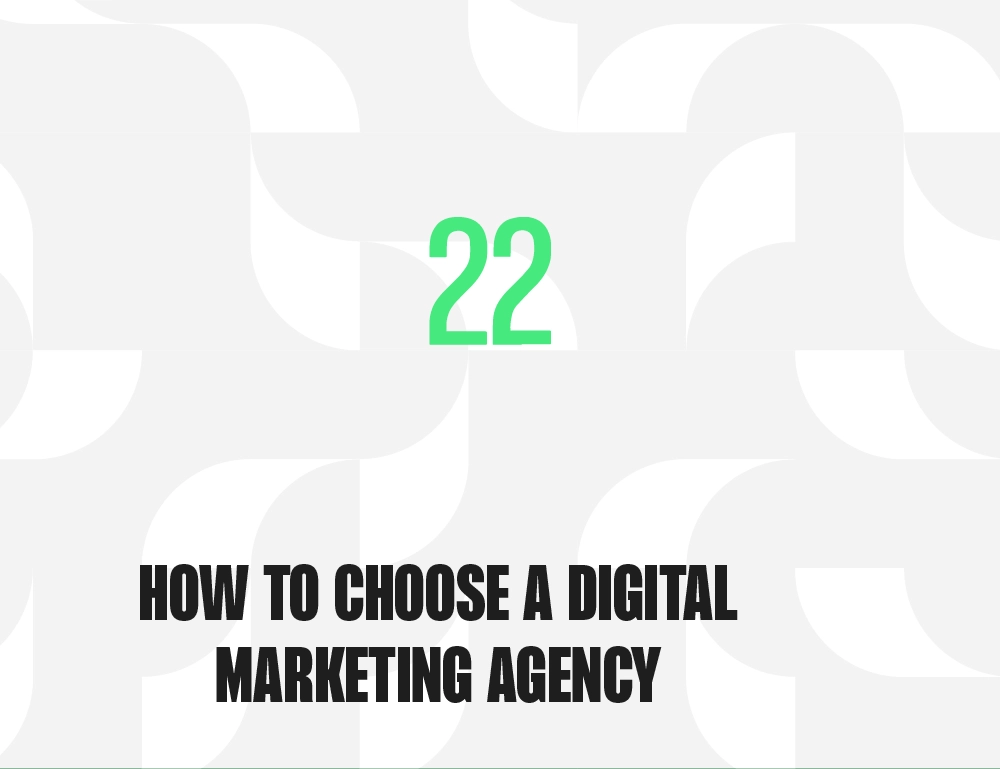Most consumers turn to the internet when they’re researching a product or service.
Business owners must keep up with consumer habits and market trends to meet this demand and not lose out on potential leads and sales.
Companies have to understand their audience, build the right messaging, and publish content in the right places to create digital marketing campaigns that work. Although handling this in-house is possible, most small businesses don’t have the budget to build and nurture a team of specialists who can handle all aspects of their digital marketing needs.
A digital marketing agency can help businesses leverage multiple solutions, tactics, and channels to reach their ideal customer. Here are some of the top considerations when looking for a digital marketing agency.
1. Identify Internal Marketing Requirements
Needs vary across different businesses, niches, and industries. The first step for any company hiring a digital marketing agency is identifying their marketing needs and requirements.
How much help do they need? What kind of services do they require? Is it for a one-time service, such as custom web design, or will they need ongoing assistance? Knowing the answers to these questions will help them narrow down their options.
2. Establish a Budget
Before accepting pitches, it’s crucial first to consider the costs. Companies should identify and break down their budget. They should be aware of how much of the total budget will go to the following:
- Media Expenses: This is the portion of the budget allocated to the costs of paid digital media placements.
- Production Costs: This refers to the expenses of producing ads, content, and other marketing materials.
- Agency Fees: This refers to how much the agency will charge for their services. Most digital marketing agencies work on a retainer basis, while others will charge a percentage of the total media expenses.
Businesses should always contact multiple agencies to compare quotes and find the best possible deal. They should also have enough room for unexpected costs and payments in their budget. Most importantly, they should always remember that cheap rates may mean they’re cutting corners somewhere. Low-cost marketing agencies may not have the skills or experience to achieve the results they want.
3. Look Into Their Qualifications
One of the most important factors a business should consider is the digital marketing agency’s experience. How long has the agency been in business? What areas of digital marketing do they have extensive experience in? Do they have experience working with businesses in the company’s specific niche or industry? A digital marketing agency may have seen great success promoting retail stores, but they may not be able to do the same for restaurants or general contractors.
A digital marketing agency should also have qualified and skilled professionals who can handle the tasks the company needs and deliver high-quality output. Do they have content marketers, graphic artists, SEO writers, and other specialists who’ll work on the company’s campaigns? If the company only plans to hire one agency, ensure they offer all the required services. Otherwise, the company might wind up outsourcing other project parts again.
4. Ask to See Their Portfolio
After finding out the extent of the services they offer, take the time to browse through their portfolio. Check out samples of the work they’ve done for their previous clients. Do they have any case studies? Seeing the work they’ve accomplished in the past will help the business identify their strengths and weaknesses. It’ll also help them evaluate whether or not the agency can provide the kind of results they want for their brand.
Don’t stop there—asking for client references is also a good idea. Talking to a previous client who was satisfied with the agency’s services will help the company set its expectations when it decides to work with the agency.
5. Check Metrics Used for Tracking and Reporting
Setting metrics or KPIs is crucial before hiring a digital marketing agency. These metrics will help the company demand accountability from the agency and determine whether they’re getting what it expects from the partnership. It’ll also ensure that output delivery is made efficiently and on time.
Here are some important questions to ask about performance metrics:
- Is there a target number for leads, sales, or revenue?
- What is the cost for each lead or sale obtained through a specific marketing strategy or platform?
- Is there a specific sales figure that must be achieved within a target period?
By knowing the specific details of what the company wants to achieve, both the company and the agency can work together to ensure that the investment matches the goals. It’ll also help the agency create realistic projections and tailor their efforts to meet the company’s demands.
Conclusion
A good business-marketing agency partnership is built on open communication and mutual trust. It may take some time, but finding the right fit is crucial.
Engage, explore, and excel with Fluid22










